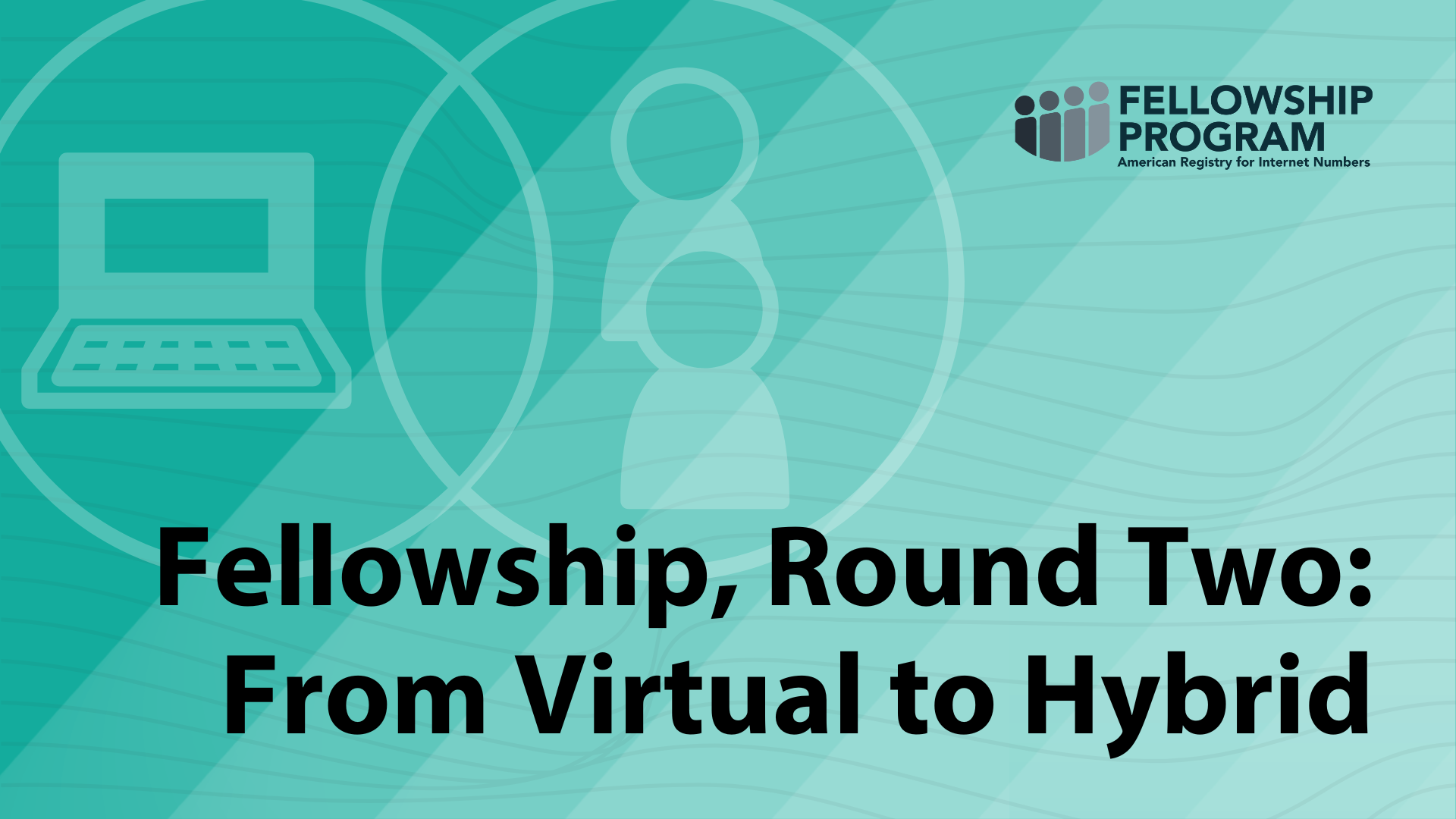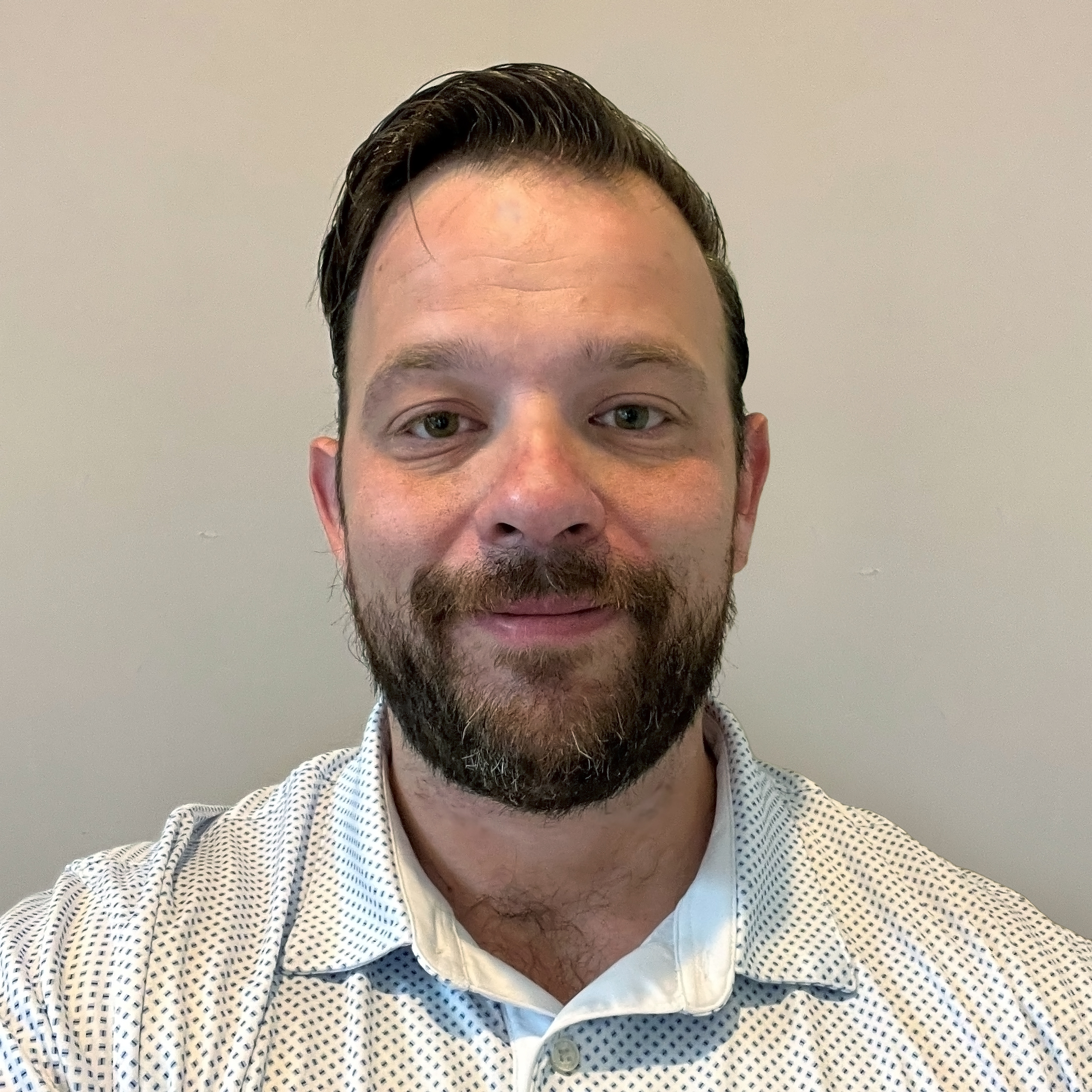
Fellowship, Round Two: From Virtual to Hybrid
Participating in the ARIN 51 Fellowship Program was an opportunity I nearly missed out on, and I am so thankful I did not. While I was fortunate enough to be part of the ARIN 50 virtual Fellowship Program, the hybrid experience introduced this spring was even better.
Mission
I’ve had dealings with ARIN as part of my job — getting new ASN assignments, SWIPing IP blocks, etc. — but those interactions were transactional. The Fellowship highlighted the Number Resource Policy Manual (NRPM), which very clearly states the mission of ARIN in sections 1.1 (Registration), 1.2 (Conservation), 1.3 (Routability), and 1.4 (Stewardship).
Two pre-recorded videos were made available for Fellows to review before the start of the live Fellowship sessions: an “Introduction to ARIN” and an “Introduction to Internet Number Resources.” The latter, presented by Senior Technology Architect Jon Worley, provided an excellent overview including Whois, routing security, global uniqueness, and DNSSEC. Although not exactly new information for me, revisiting the basics was an important part of building up to the Policy Development Process (PDP) and why ARIN’s biannual meetings take place.
Policy
After gaining a new understanding of ARIN’s mission, the virtual sessions in the weeks before ARIN 51 were absolutely essential to being prepared for the ARIN meeting. Understanding the PDP, the Draft and Recommended Draft Policies on the docket, and the various Advisory Council and Board of Trustees working groups helped me understand the structure of the meeting and how it intended to meet its goals.

Lou, in red, participates in a straw poll for a Recommended Draft Policy discussed at ARIN 51.
The PDP has real world impacts on how ARIN executes its mission — which directly impacts the ecosystem of the Internet. The goal of the PDP is to generate technically sound policies that have community support; it’s an open and transparent process that provides meaningful opportunity for public participation. Proposed policies must stand on their merits, and this is why discussion in the Public Policy Mailing List can be intense. It matters what happens with these policies, which impact people like me who are responsible for handling Internet number resources.
Participation
Participation is a critical part of the process, and ARIN strongly encourages it. Attending the ARIN 51 meeting in Tampa far exceeded my expectations, which involved dry, non-technical policy discussions. On the contrary, most of the sessions engaged technical interests and the policies discussed focused on those four key goals of registration, conservation, routability, and stewardship.
Not to mention, I met a number of amazing people — the staff and Mentors supporting the Fellowship, of course, but also individuals from the community. My mentor was Advisory Council Member Matthew Wilder, and I enjoyed a number of valuable discussions with him. The lunchtime Table Topics discussion and the ROA-thon were also great learning experiences, communicating the importance of using Route Origin Authorizations (ROAs) and the impact of updates to Resource Public Key Infrastructure (RPKI) services ARIN is rolling out. The keynote address and panel on IPv6 success stories were other technically sound and compelling portions of the meeting.

Lou stands at the microphone listening to ARIN President & CEO John Curran answer his question.
I did walk up to the open microphone a number of times during ARIN 51. All my questions were answered, and I felt part of the process in a meaningful way.
Takeaways
When it comes to my biggest takeaways from the ARIN Fellowship Program, the first thing that comes to mind is “Sign your ROAs!” Otherwise, I’ve learned that stewardship and participation are imperative for network operators. Prior to my Fellowship experiences, I viewed my interactions with ARIN as simply transactional, but I now know there is a real importance to keeping the Internet system healthy by accomplishing ARIN’s underlying goals of registration, conservation, routability, and stewardship. This helps ensure there will continue to be a healthy, public Internet in the future.
Speaking of the future, I know that the best way I can stay involved in the ARIN community is to be engaged. I plan on discussing the ARIN Fellowship Program with my New York Network Operators Group (NYNOG) community to encourage others to participate, and perhaps I’ll have the chance to join an ARIN working group at some point.
Finally, through the Fellowship Program, I’ve realized that ARIN is not just the Regional Internet Registry (RIR) for North America and parts of the Caribbean — it is involved in Internet number resource policy and Internet governance at the global level by interacting with the other RIRs, ICANN, government entities, and more to support the operation and growth of the Internet.
Any views, positions, statements, or opinions of a guest blog post are those of the author alone and do not represent those of ARIN. ARIN does not guarantee the accuracy, completeness, or validity of any claims or statements, nor shall ARIN be liable for any representations, omissions, or errors contained in a guest blog post.
Recent blogs categorized under: Fellowship Program
GET THE LATEST!
Sign up to receive the latest news about ARIN and the most pressing issues facing the Internet community.
SIGN ME UP →Blog Categories
RPKI • Updates • Outreach • Internet Governance • Grant Program • Tips • IRR • IPv6 • Public Policy • Caribbean • Elections • ARIN Bits • Fellowship Program • Training • Security • Guest Post • Data Accuracy • Business Case for IPv6 • IPv4 • Customer Feedback



